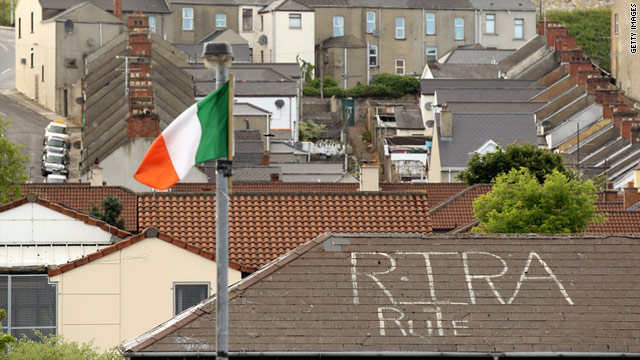Sectarian rioting rocks Belfast

- Molotov cocktails mark east Belfast clashes
- Ambulance services report two injured
- Northern Ireland has seen a resurgence of violence in recent months
Belfast, Northern Ireland (CNN) -- Sectarian rioting broke out in eastern Belfast late Monday, with leaders from both Catholic and Protestant communities reporting attacks on homes overnight.
Police reported Molotov cocktails were being thrown as a large crowd gathered on the streets that separate Catholic and Protestant neighborhoods in the area, a longstanding Northern Ireland flash point. Ambulance services reported two people injured early Tuesday, and reporters attempting to cover the disturbances were threatened.
The Irish republican party Sinn Fein said up to 100 masked men raided Catholic-owned homes in the Short Strand neighborhood after allegations by unionist politicians that Protestant homes were attacked Sunday. Police had no information on any of Sunday's reported attacks.
Sinn Fein blamed the attacks on Catholics on members of the Ulster Volunteer Force, a loyalist paramilitary group that officially disarmed in 2009. Police had no immediate comment on the assertion.
After a long period of quiet in its ongoing "Troubles" between Catholics and Protestants, Northern Ireland has seen a resurgence of violence in recent months. Tensions also are typically elevated in early summer, when Protestant groups hold commemorative marches to celebrate the 17th-century victory of England's King William III over his Catholic predecessor, James II.
